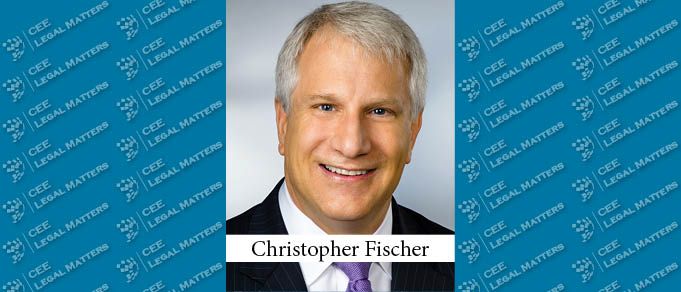Navigating the complexities of managing multinational legal teams requires a blend of strategic foresight, robust communication skills, and a profound understanding of diverse legal frameworks. Drawing on over two decades of experience, former Paysafe Associate General Counsel Christopher Fischer shared during the 2024 CEE General Counsel Summit his strategies for aligning diverse teams toward a unified goal, emphasizing the necessity of effective leadership in the globalized legal environment of the time.
Herding Cats: Leadership in Diverse Legal Teams
Fischer’s tenure across various continents – from the bustling markets of India to the complex legal landscapes of Latin America – endowed him with a keen insight into the challenges of leading diverse teams. Describing the management of such teams to be “like herding cats,” Fischer highlighted the inherent difficulties in aligning individuals who possessed not only strong personalities but also specialized legal expertise.
“In managing lawyers, you quickly realize that you are dealing with some of the brightest people around, top of the food chain, so to speak, which makes team cohesion a significant challenge,” Fischer explained. He emphasized that legal professionals, due to their training and expertise, often exhibit “alpha traits” that could complicate traditional management techniques. To address these challenges, Fischer advocated for a management style that was adaptable yet firm, ensuring that each team member’s strengths were recognized and harnessed towards collective objectives.
Fischer’s approach is characterized by his proactive stance on communication and involvement. “I prefer to over-communicate rather than under-communicate,” he asserted. This philosophy was crucial in legal settings where discretion and judgment were paramount. By sharing critical information and involving the team in decision-making processes, Fischer attempts to foster a transparent environment that cultivates trust and mutual respect.
Building Cohesion Through Communication and Transparency
Central to Fischer’s management philosophy is his commitment to transparency and open communication. During his presentation, he challenged the outdated notion that hoarding information equates to power, suggesting instead that true power lay in empowered teams. “As a manager, sharing information became less about retaining power and more about empowering your team to act effectively,” Fischer noted. This approach not only “demystifies the management process but also integrates various team members’ perspectives, leading to more informed and cohesive strategies.”
Furthermore, Fischer emphasized the importance of trust and inclusivity within the team, believing that these elements are foundational to any high-performing group. “Trust was earned and shared within the team through open channels of communication,” he stated, highlighting how this trust translated into a cohesive unit that could navigate elaborate legal challenges more effectively.
Fostering Growth and Defining Purpose
Underpinning Fischer’s management success is his relentless focus on individual and collective growth. He viewed each team member’s development as integral to the overall success of the organization. “Managing my team also involved mentoring them, coaching them, and maintaining an open-door policy,” he described, illustrating his hands-on approach to leadership that prioritizes personal development and career progression.
Fischer also underscored the significance of defining a clear purpose and vision for the team. This process, according to him, was essential for maintaining alignment and motivation. “What I wanted to do was bring the team together to define for ourselves why we are here,” Fischer recounted, describing how he facilitates sessions to collaboratively establish a mission and vision that resonate with all team members. This exercise not only clarifies the team’s objectives but also reinforces their commitment to the organization’s broader goals.
By focusing on these developmental aspects, Fischer ensures that his team is not only prepared to meet current legal challenges but is also equipped to handle future uncertainties. Such a forward-thinking approach is particularly crucial in a rapidly changing global legal environment, where adaptability and continuous learning are often the keys to staying one step ahead.
The Art of Legal Team Management
Ultimately, Christopher Fischer’s insights into managing multinational legal teams shed light on the complex interplay between leadership, communication, and development in a global context. His strategies, characterized by adaptability, transparency, and a focus on growth, provide a kind of blueprint for legal managers worldwide. As legal teams continue to grow in size and scope, Fischer’s experiences underscored the critical importance of effective leadership in fostering a cohesive, dynamic, and responsive legal team capable of advancing organizational objectives across borders.
To draw once more on Fischer’s analogy, the art of managing legal teams, much like herding cats, requires patience, understanding, and a skillful application of leadership techniques that resonate across diverse cultural and professional landscapes.
















